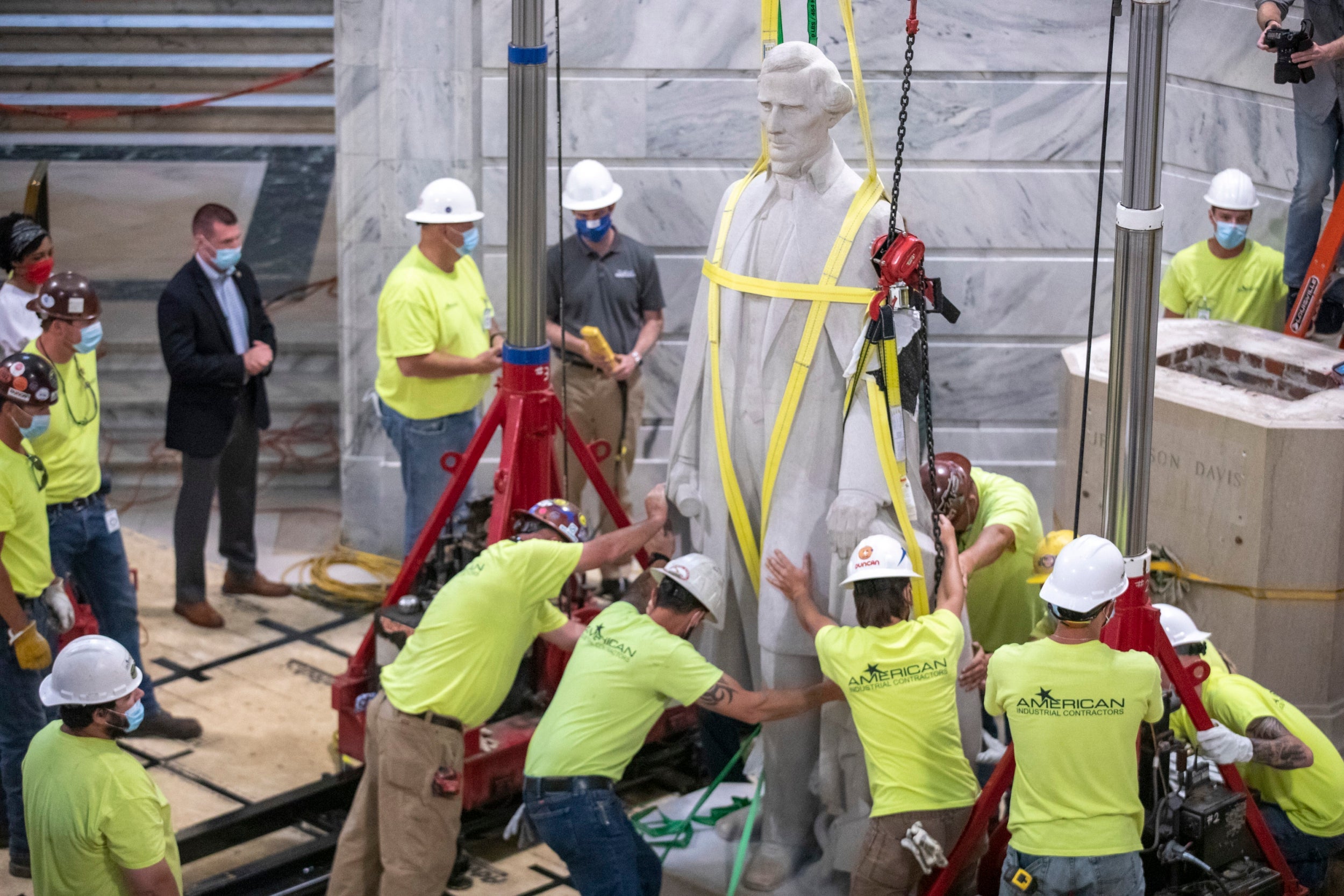Statue of Confederate president Jefferson Davis removed from Kentucky capitol
Governor says move means people will no longer have to see a symbol that 'stands for the enslavement of their ancestors'
A statue of Jefferson Davis, president of the Confederacy whose secession from the United States sparked the Civil War, has been removed from the state capitol in Frankfort, Kentucky.
The 15ft marble likeness was taken down on Saturday following a vote the night before by the panel that oversees statues at the capitol, the Lexington Herald Leader reported. The proposal to remove it was passed by 11 votes to one.
The statue will now be moved to the Jefferson Davis Historic Site in Todd County, where he was born.
Its removal is the latest in a series of moves to bring down symbols of slavery and oppression both in America and across the world in the wake of protests following the killing of George Floyd by police officers in Minneapolis.
A statue of Davis was pulled down in Richmond, Virginia, where plans to remove one of Robert E Lee, the commander of Confederate forces during the war, are the subject of a legal battle.

Nancy Pelosi has called for about a dozen statues of Confederate figures to be removed from the Capitol in Washington DC.
NASCAR said it would no longer allow Confederate flags to be displayed at its races.
However, Donald Trump has angrily refused to consider renaming the 10 US military bases named after Confederate generals, which include Fort Bragg – the country's largest – which is named after Braxton Bragg.
In the British city of Bristol a statue of Edward Colston, a 17th century benefactor who made his fortune through the slave trade, was pulled down by a crowd last week. In Belgium statues of King Leopold II – notorious for the sadistic treatment of people in Congo when it was a colony – have been defaced or removed.
The statue of Jefferson Davis was put up in 1936 by a group called United Daughters of the Confederacy, the Herald Leader said.
Its removal follows a plea by state governor Andy Beshear, who said: "It was past time for this vote and for this action.
"But what it will mean is that we get a little closer to truly being Team Kentucky - that every child who walks into this capitol feels welcome, and none of them have to look at a symbol and a statue that stands for the enslavement of their ancestors."
The one panel member who voted against taking down the statue, Brandon Todd Wilson, was quoted as saying that the move was a "slippery slope" and that no statue should have been put up in the capitol. He said others – including one of Abraham Lincoln, the 16th president of the United States whose Union forces defeated Davis – should also be removed.
Davis was imprisoned for two years following the Confederates' defeat in 1865, which saw the end of slavery in the US. He wrote a memoir of the war and died in New Orleans in 1889, by which time he was urging reconciliation between North and South.
Join our commenting forum
Join thought-provoking conversations, follow other Independent readers and see their replies
Comments
Bookmark popover
Removed from bookmarks